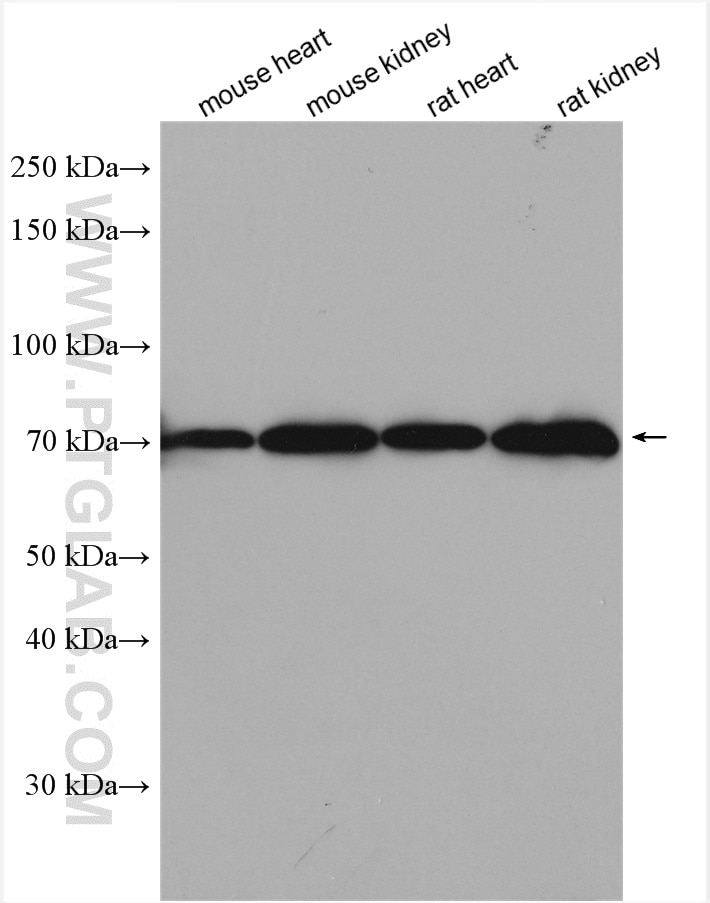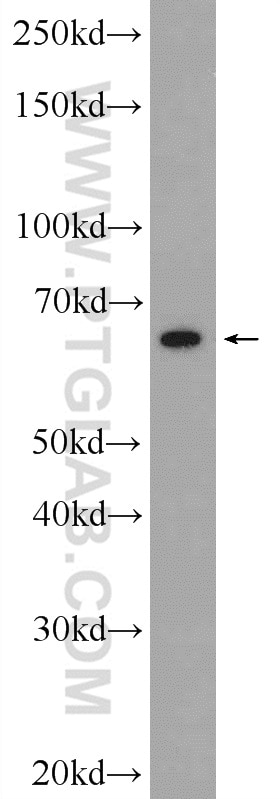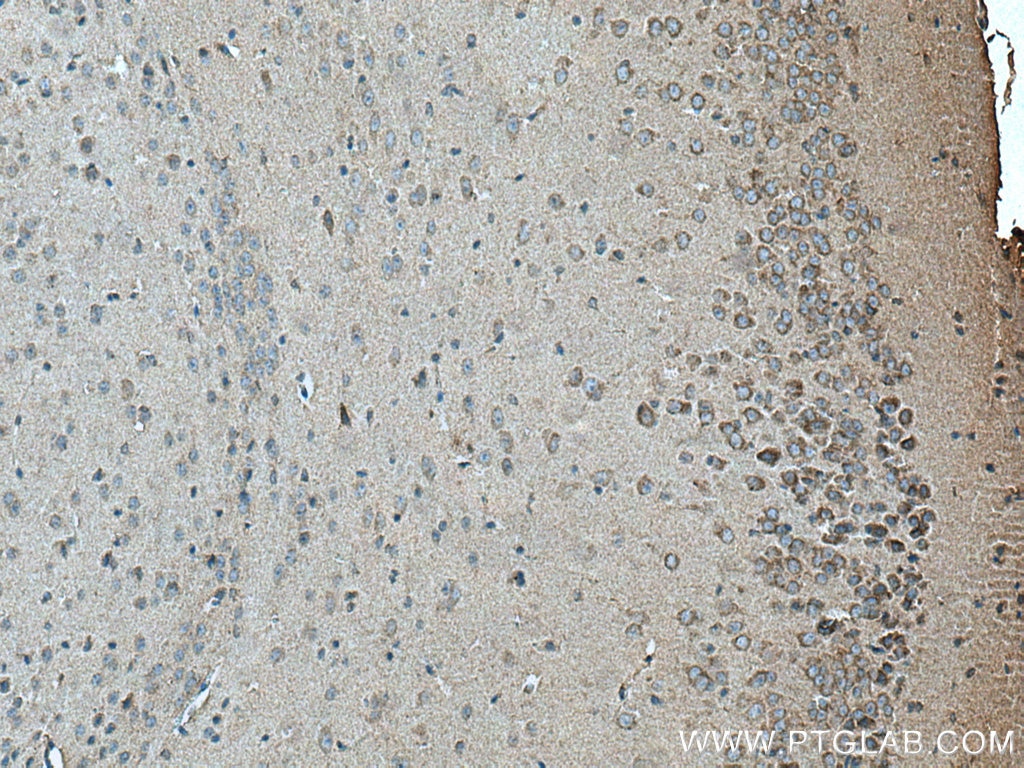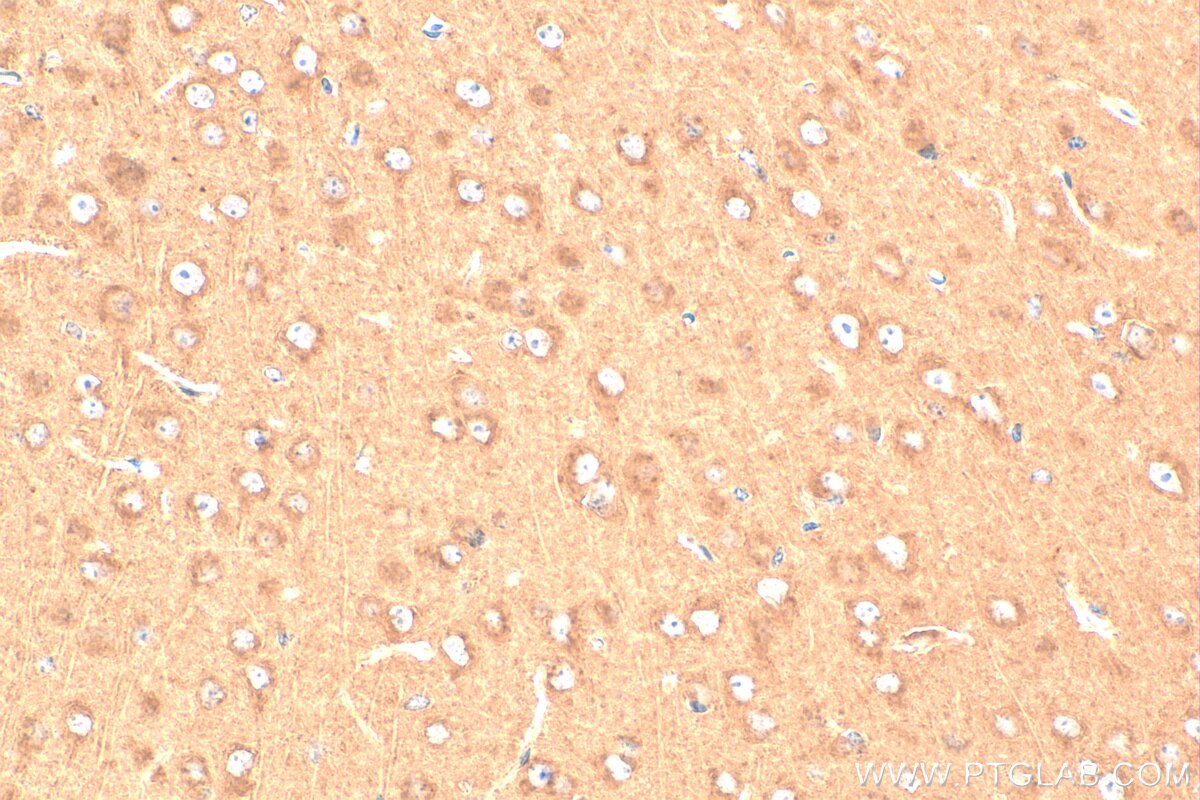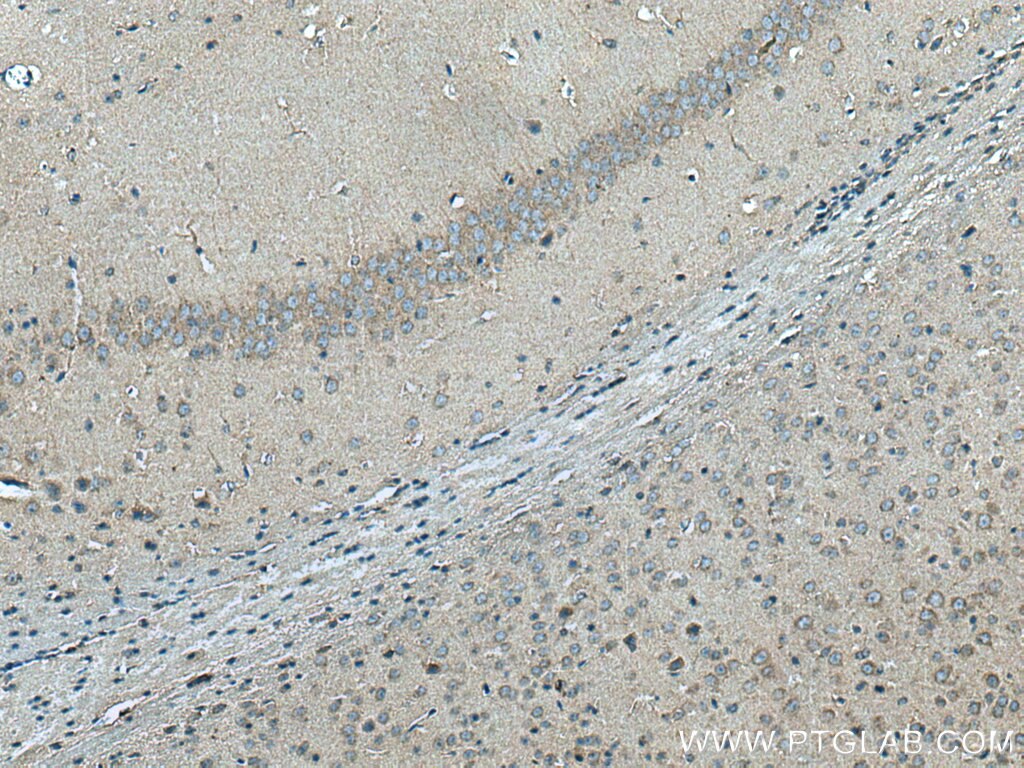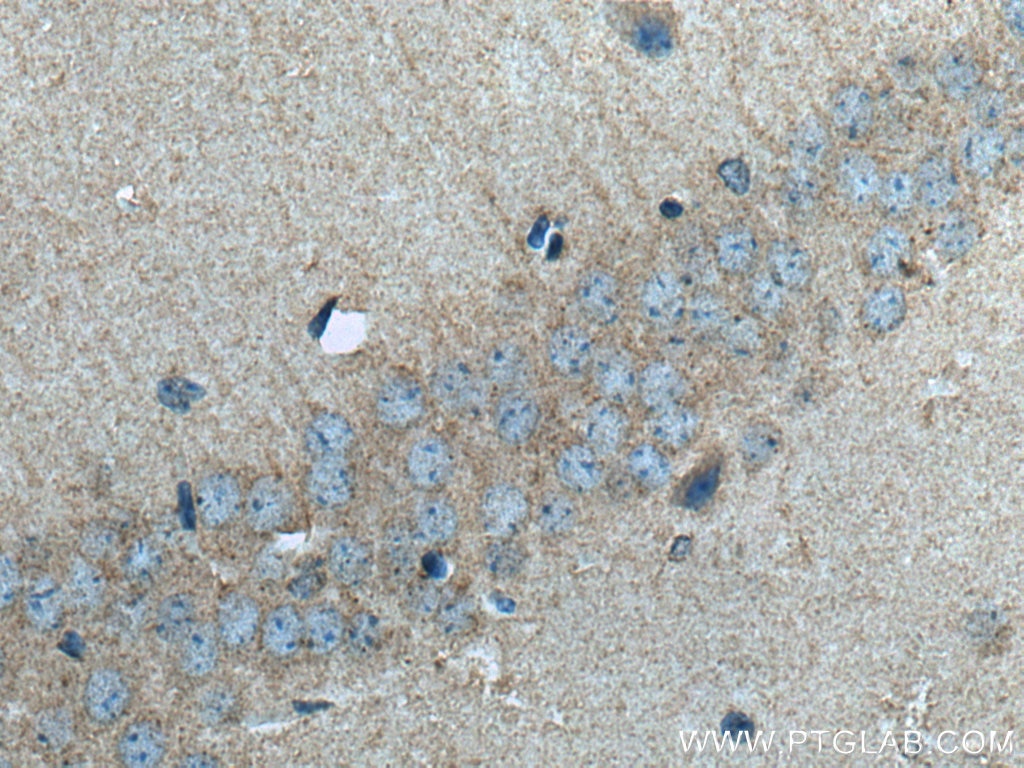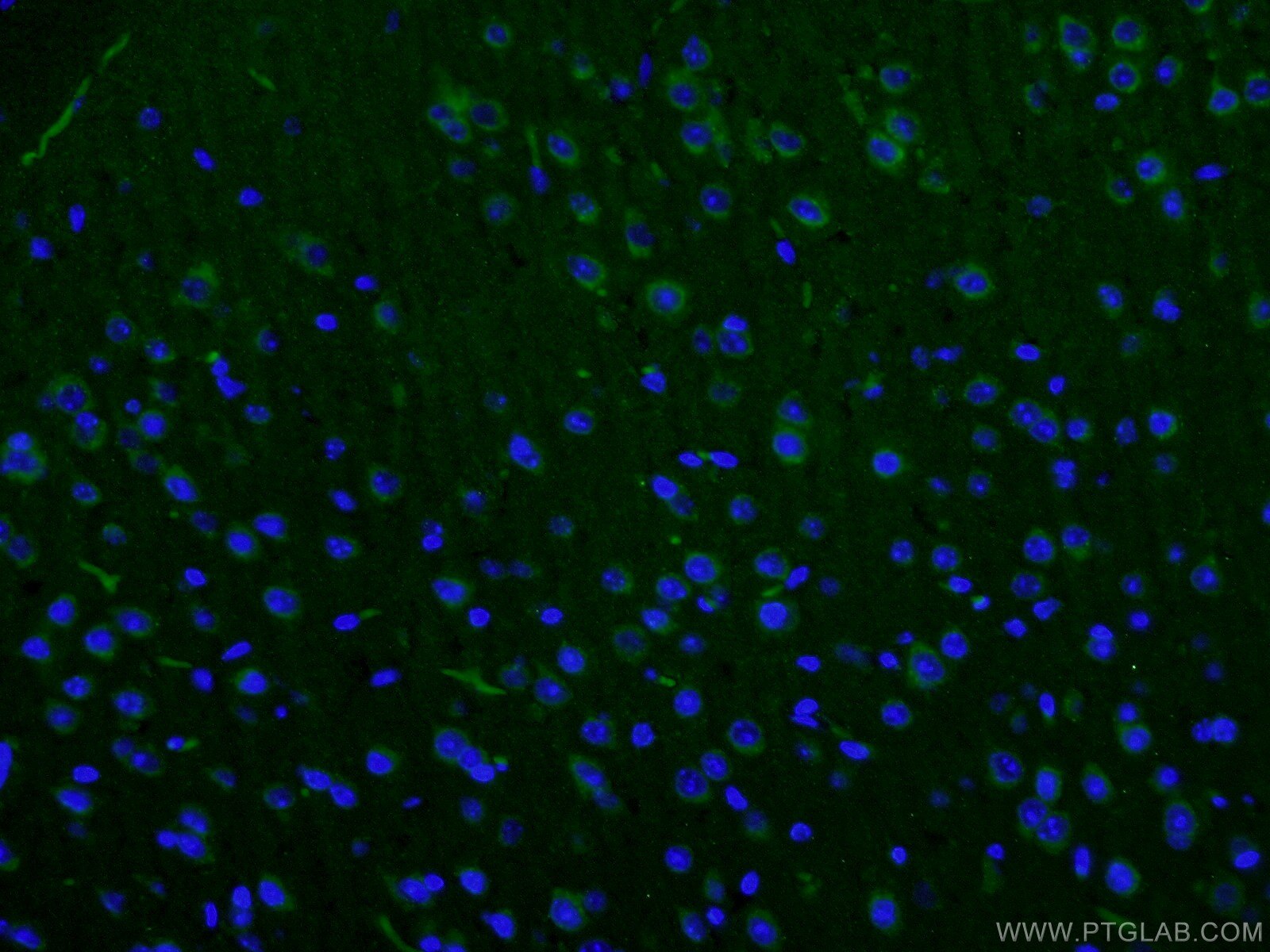- Phare
- Validé par KD/KO
Anticorps Polyclonal de lapin anti-SLC6A8
SLC6A8 Polyclonal Antibody for WB, IHC, IF-P, ELISA
Hôte / Isotype
Lapin / IgG
Réactivité testée
Humain, rat, souris
Applications
WB, IHC, IF-P, ELISA
Conjugaison
Non conjugué
N° de cat : 20299-1-AP
Synonymes
Galerie de données de validation
Applications testées
| Résultats positifs en WB | tissu cardiaque de souris, cellules HUVEC, tissu cardiaque de rat, tissu rénal de rat, tissu rénal de souris |
| Résultats positifs en IHC | tissu cérébral de souris, il est suggéré de démasquer l'antigène avec un tampon de TE buffer pH 9.0; (*) À défaut, 'le démasquage de l'antigène peut être 'effectué avec un tampon citrate pH 6,0. |
| Résultats positifs en IF-P | tissu cérébral de souris |
Dilution recommandée
| Application | Dilution |
|---|---|
| Western Blot (WB) | WB : 1:300-1:1000 |
| Immunohistochimie (IHC) | IHC : 1:50-1:500 |
| Immunofluorescence (IF)-P | IF-P : 1:50-1:500 |
| It is recommended that this reagent should be titrated in each testing system to obtain optimal results. | |
| Sample-dependent, check data in validation data gallery | |
Applications publiées
| KD/KO | See 2 publications below |
| WB | See 9 publications below |
| IHC | See 8 publications below |
| IF | See 7 publications below |
Informations sur le produit
20299-1-AP cible SLC6A8 dans les applications de WB, IHC, IF-P, ELISA et montre une réactivité avec des échantillons Humain, rat, souris
| Réactivité | Humain, rat, souris |
| Réactivité citée | rat, Humain, souris |
| Hôte / Isotype | Lapin / IgG |
| Clonalité | Polyclonal |
| Type | Anticorps |
| Immunogène | SLC6A8 Protéine recombinante Ag14110 |
| Nom complet | solute carrier family 6 (neurotransmitter transporter, creatine), member 8 |
| Masse moléculaire calculée | 635 aa, 71 kDa |
| Poids moléculaire observé | 65-70 kDa |
| Numéro d’acquisition GenBank | BC012355 |
| Symbole du gène | SLC6A8 |
| Identification du gène (NCBI) | 6535 |
| Conjugaison | Non conjugué |
| Forme | Liquide |
| Méthode de purification | Purification par affinité contre l'antigène |
| Tampon de stockage | PBS with 0.02% sodium azide and 50% glycerol |
| Conditions de stockage | Stocker à -20°C. Stable pendant un an après l'expédition. L'aliquotage n'est pas nécessaire pour le stockage à -20oC Les 20ul contiennent 0,1% de BSA. |
Informations générales
SLC6A8, also known as the sodium- and chloride-dependent creatine transporter 1 (CT1), plays a critical role in transporting creatine, a crucial molecule for energy metabolism, into cells. SLC6A8 belongs to the solute carrier family 6 (SLC6), responsible for transporting diverse molecules across cell membranes. SLC6A8 expression is highest in muscle, kidney, and other tissues with high energy demands. Mutations in SLC6A8 cause creatine transporter deficiency, an X-linked mental retardation disorder (PMID: 17465020).
Protocole
| Product Specific Protocols | |
|---|---|
| WB protocol for SLC6A8 antibody 20299-1-AP | Download protocol |
| IHC protocol for SLC6A8 antibody 20299-1-AP | Download protocol |
| IF protocol for SLC6A8 antibody 20299-1-AP | Download protocol |
| Standard Protocols | |
|---|---|
| Click here to view our Standard Protocols |
Publications
| Species | Application | Title |
|---|---|---|
Sci Adv Glioblastoma exploits ATP from leading-edge astrocytes to fuel its infiltrative growth revealed by spatially resolved chimeric analysis | ||
Front Oncol Long Non-Coding RNA AL513318.2 as ceRNA Binding to hsa-miR-26a-5p Upregulates SLC6A8 Expression and Predicts Poor Prognosis in Non-Small Lung Cancer. | ||
J Agric Food Chem Artepillin C, a key component of Brazilian propolis, induces thermogenesis in inguinal white adipose tissue of mice through a creatine metabolism-related thermogenic pathway. | ||
Ann Transl Med SLC6A8 is involved in the progression of non-small cell lung cancer through the Notch signaling pathway.
| ||
Technol Cancer Res Treat SLC6A8 Knockdown Suppresses the Invasion and Migration of Human Hepatocellular Carcinoma Huh-7 and Hep3B Cells.
|
